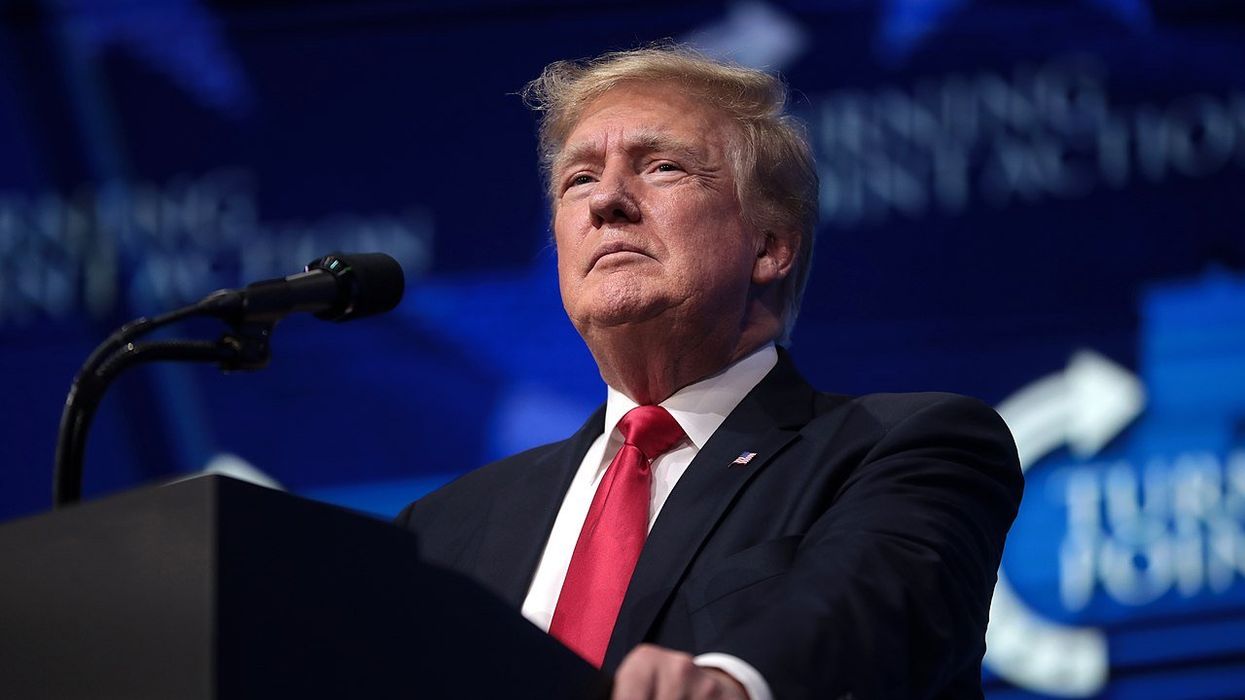'Sobering' analysis shows how Trump’s 'immunity' argument could make another term even more dangerous

Former President Donald Trump in Phoenix in July 2021 (Gage Skidmore)
January 10, 2024 | 11:28AM ETBank
A panel of three federal appellate judges — Florence Y. Pan, Karen Henderson and Michelle Childs — appeared to be quite skeptical when, on Tuesday morning, January 9, they grilled attorney D. John Sauer about Donald Trump's "presidential immunity" claims.
Trump and his lawyers are arguing that he enjoys immunity from prosecution in special counsel Jack Smith's election interference case because he was still president in late 2020 and early 2021. Judge Tanya Chutkan flatly rejected that argument, ruling that presidents in the U.S. do not enjoy a "divine right of kings." And Judges Pan, Henderson and Childs didn't appear to be receptive to Sauer's arguments during the January 9 hearing.
But in an article published by The New Republic on January 9, liberal journalist Greg Sargent (best known for his Washington Post columns) lays out a "sobering" scenario in which the federal courts agree with Trump's "immunity" argument and he wins the 2024 presidential election.
POLL: Should Trump be allowed to hold office again?
In that scenario, Sargent warns, Trump would be unconstrained.
"This has been widely depicted as a Hail Mary effort to scuttle special counsel Jack Smith's prosecution of Trump for conspiracy to obstruct the official proceeding of Congress' count of presidential electors — otherwise known for nearly 250 years in this country as the peaceful transfer of power," Sargent explains. "But there's another way to understand Trump's move: It's about what comes next. If he wins on this front, he'd be largely unshackled in a second presidential term, free to pursue all manner of corrupt designs with little fear of legal consequences after leaving office again."
Sargent continues, "That Trump might attempt such moves is not idle speculation. He's telling us so himself. He is openly threatening a range of second-term actions —such as prosecuting political enemies with zero basis in evidence — that would almost certainly strain the boundaries of the law in ugly new ways. Now, imagine him pursuing this project with a get-out-of-prosecution-free card in his pocket."
The journalist notes, however, that many legal experts believe Trump has a "weak case" with his "immunity" arguments.
READ MORE: Ex-White House lawyer: Trump 'greatest threat to democracy we've ever seen'
"Smith is likely to prevail," Sargent writes. "The three-judge panel includes Michelle Childs and Florence Pan, appointed by President Biden, and Karen Henderson, appointed by President George H.W. Bush. So it doesn't appear to be a Trump-friendly panel. But what if the court does side with Trump?"
Sargent adds, "It's been said on social media that if Trump wins here, his second-term powers would be quasi-absolute — that he could order, say, the assassination of political foes with impunity. That overstates the matter.… But a favorable decision could still unshackle Trump in a big way."
That unshackling, Sargent warns, could include using the courts to take revenge against his political enemies.
Kristi Parker, an attorney with Protect Democracy, told Sargent, "Trump has threatened to use the presidency to punish enemies, reward friends, and protect himself. If the courts recognize immunity for the broad array of official acts of the presidency, that will incentivize Trump to abuse those powers further."
READ MORE: Legal experts tear apart Trump's 'presidential immunity' claims: 'Abhorrent to American law'
Greg Sargent's full analysis for The New Republic is available at this link.